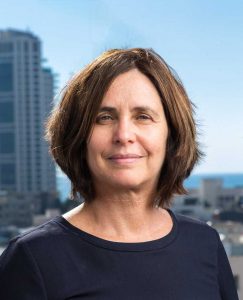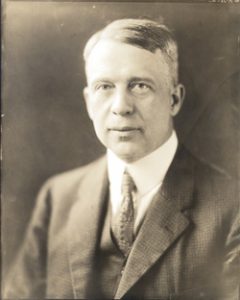The Harold Pender Award Lecture
The Harold Pender Award, initiated in 1972, is given by the Faculty of the Moore School to an outstanding member of the engineering profession who has achieved distinction by significant contributions to society. The Pender Award is the School’s highest honor and is celebrated with a guest lecture by the honoree and a reception.
2023-2024 Pender Award and Lecture

Shafi Goldwasser
Director, Simons Institute
C. Lester Hogan Professor, University of California Berkeley
Monday, February 5, 2024
3:30 – 4:30 p.m.
Wu and Chen Auditorium, Levine Hall
3330 Walnut Street
Reception to follow in the Levine Lobby
A recording of the talk can be found here
Past Recipients
2018: Yann LeCun – for pioneering contributions in the development of deep convolutional neural networks.
2013: Barbara Liskov – for pioneering contributions to programming languages and software system design.
2010: Robert E. Kahn and Vinton G. Cerf – for their pioneering and seminal contributions to network-based information technology, and especially for the design and implementation of the TCP/IP protocol suite, which continues to provide the foundation for the growing Internet.
2006: Mildred Dresselhaus – for pioneering contributions and leadership in the field of carbon-based nanostructures and nanotechnology, and for promoting opportunities for women in science and engineering.
2003: Dennis Ritchie and Ken Thompson – for development of the UNIX operating system and C programming language.
2002: John J. Hopfield – for his pioneering accomplishments in the field of Computational Neuroscience and Neuroengineering.
2000: Jack St. Clair Kilby – for his contribution to the invention of the integrated circuit, or microchip.
1999: John H. Holland – Founder of genetic algorithms and innovative research in the science of complexity and adaptation.
1995: B. George Dantzig, – Developer of the simplex algorithm spawning the field of linear programming.
1993: Hiroshi Inose – Leader in advances in digital communication and in increasing our understanding of the effects of information flow on society.
1991: Arno Penzias – Discoverer of the background microwave blackbody radiation of the universe.
1990: Dana S. Scott – Pioneer in application of concepts from logic and algebra to the development of mathematical semantics of programming languages.
1980: Leo Esaki – Pioneer in tunneling phenomena in semiconductors and development of quantum well structures.
1988: John Bardeen – Co-inventor of the transistor and contributor to the theory of superconductivity.
1987: Herbert A. Simon – Contributor to cross-disciplinary work between computer science, psychology, economics, and management, including the development of artificial intelligence and cognitive science.
1986: Ronold W. P. King – Leader in the development of electromagnetic antenna theory.
1985: Amnon Yariv – Innovator in quantum electronics and integrated optics.
1984: Carver Mead and Lynn Conway – Developers of CAD techniques for VLSI technology and authors of first VLSI textbook.
1983: John Backus – Developer of speed-coding and FORTRAN.
1982: Maurice V. Wilkes – Developer of world’s second large-scale general-purpose electronic digital computer and author of first digital computer programmers textbook.
1981: Richard W. Hamming – Father of algebraic coding theory.
1980: Robert H. Noyce – Developer of the integrated circuit.
1979: Edwin H. Land – Inventor of instant photography.
1978: Claude E. Shannon – Creator of quantitative philosophy of information.
1977: Jan A. Rajchman – Electronic and computer research.
1976: Hyman G. Rickover – USN, Father of the Nuclear Navy.
1975: Chauncey Starr – Director of the Electric Power Research Institute (EPRI).
1974: Peter C. Goldmark – Inventor of the 33-1/3 rpm long-playing record (among other things).
1973: John Mauchly and J. Presper Eckert – Inventors of ENIAC.
1972: Edward E. David, Jr. – Science Advisor to the President of the United States.
About Harold Pender
Harold Pender (1879-1959) was the first Dean of the University of Pennsylvania’s Moore School of Electrical Engineering, a position he held from the founding of the School in 1923 until his retirement in 1949.
Dean Pender’s academic career began in 1909 when he was appointed professor of Electrical Engineering and Head of Laboratories at MIT. In 1914, he left MIT and became director of the Department of Electrical Engineering at the University of Pennsylvania.
His distinguished career involved basis experimental research on electric and magnetic fields and applied research in electrical power which was, at the turn of the century, as now, a significant societal problem. His early personal research on the relationship of electric circuits to magnetic fields demonstrated quantitatively for the first time that a moving electrical charge produces a magnetic field.
He authored five technical books in the areas of electromagnetic field and circuit theory and in electrical machinery. His various editions of Pender’s Handbook of Electrical Engineers were known to practically all electrical engineers over several generations.
In 1924, at the start of the radio age, Dr. Pender co-founded the International Resistance Company (IRC) and in 1932 developed and patented the composition resistor.
Dean Pender encouraged faculty research directed toward the solution of significant engineering problems. Under his direction, the Moore School constructed a differential analyzer for use in solving problems in power and ballistics. This led to the development of ENIAC, the world’s first large-scale all electronic, general purpose, digital computer which was completed at the Moore School in 1946. The proof that such a machine could be built founded a new industry and marked the beginning of the Computer Revolution.
We remember Harold Pender today for his personal engineering achievements and the role he played in establishing and directing the Moore School, and we honor his memory by representing the Harold Pender Award: “to an outstanding member of the engineering profession who has achieved distinction by significant contributions to society.”

